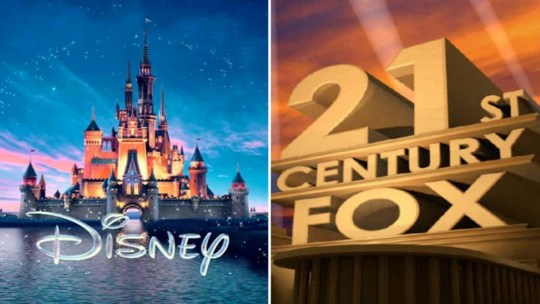Text
A Quiet Place; an element of horror we all know.
The new horror film, “A Quiet Place”, directed by The Office actor John Krasinski, is undoubtedly one of its kind. In a dystopian yet calm world in upstate New York, we meet a family whom have adapted every aspect of daily life to minimize noise as much as they can. In a broken and desolate town, we learn through the means of newspapers, that a foreign alien species has landed in Mexico via meteors and has claimed the throne to the world, by hunting its prey by noise. Interestingly, the film focuses on the daughter of mother Emily Blunt, whom is deaf. The dynamic by the family is triggered by the uproar of the daughter fighting the father, John Krasinski, over frustration and triggering a chain of events that puts all the family in danger. The insane, and well though element that terrorizes the audiences watching this film is the lack of sound. And therefore the filling of our own imagination. It is literally seat wrenching, teeth grindingly scary. All of us as kids remember being scared of the silence and the darkness. When turning of the lights or being in total darkness and silence. And the element of silences in this film, is something none of us like, especially when we live in a world filled by sound constantly, it is difficult for us to imagine a silent one. Yet how we ourselves would survive these massive creatures.

My favorite scene was perhaps when the father and the son return home to see the red lights turned on whilst the mother has broken waters and is about to give birth to their child. The sheer thought of her doing a forced abortion, not being able to scream and the utter closeness of her death (that is deterred by the fireworks ignited by the son) is insane. John Krasinski has confirmed a sequel to the film will be made in order to give further development to the unfinished story. Although one can wonder how the story can be continued. The film serves as a good alternative horror to today’s usual jump scares and is highly recommended due to its psychological terror.
0 notes
Text
Israeli censorship of media production on IDF and Army
As of the beginning of 2018, the Israeli government has been rumored to consider a new law banning any media about IDF or Army operations in the occupied territories of Palestine. Specifically that about video and photography. Does this represent a major international crime and a strife of censorship by the government and major news outlets to hide human rights abuses by Israeli forces? It is interesting to note than in the world of media, documentaries are a major part of truth and discussion apart from movies. And in the case of warfare and military, this is a crucial element to share to the world the truth behind events happening. In this case, the Israeli government alongside newspapers are now clearly demonstrating a further element of authoritarian rule over media and politics. The new rumored law would mean you could be detained and jailed for years if caught filming troops. This represents a direct threat to media, as we have all reflected liberty and freedom of speech through the use of film and photography.

This is concerning, especially after the greater acquisition of Disney in December of Fox. It seems that multiple governments are gleaming on the chance of having a monopoly of media and pushing an agenda that is in their political interest. The question is, what can us, as the people do to deter this threat to media? The foundation of creativity and freedom of speech? Ideals, although peaceful, contradict history, which is violent. And oppression must be met with retaliation. And in this context it means to continue reporting, to continue fighting censorship and monopoly by producing and directing pieces important to both us and the world.
0 notes
Text
Marvel’s exploitations of superheroes; when will it end?
Everyone has heard of Marvel and DC superheroes. You can’t escape them. Which fan are you, right? Superheroes are now what seems to be a never ending and necessary element in the stream of modern digital film. In the late 2000s, we were introduced with a couple; Iron Man, Hulk, etc. But now, we have at least a couple hundred different superheroes, joining teams somehow, coexisting in the same universe and fighting unoriginal battles for the fate of the planet non-stop in overly valued massive Hollywood productions. Sure, they are successful, one cannot fight that claim, BUT, I for one, am tired of this.
So, where is the superheroes blockbuster business going? We see plots from earlier movies in the 1940s and 1950s being rescripted and readapted constantly to interest new modern audiences whilst pitching the same commercial products and licensing. Take for example, “The Mummy”. However, companies realized that not only in the movies, but in the comics, certain “loop holes” in the story or “breadcrumbs” if you will, allowed for the production companies, especially that of Marvel, to exploit them to a whole new level and integrate new story lines and characters to the already bizarre worlds; for example, Avengers Wars. These are a series now. And have been sold to audiences successfully, now gobbling up these movies in theaters and producing hundreds of millions in profits. And this is where clearly companies realized where the big money was. Marvel, acquired by Disney in 2009, has now produced 18 movies and has 11 more planned. And all is good and dandy. However, other companies, realizing the success of Marvel, are now jumping into the shared universe money train. Warner Brothers DC comics and Monsters franchises being competitors, and now Paramount jumping in as well. Paramount blowing the sky by considering 14 new Transformer stories. That is plain exploitation. These big hit companies and multi-billion productions over the decades have now left audiences dwindling emotionally as they identify their era as one of superheroes. Where we all wish we were one, and can identify with one. But, when will audiences get tired, or movies stop? Well, for one, smaller companies are struggling to keep up with the big boys and are lagging behind a monopoly in cinema, and audiences keep going. Bringing their children, and leaving the story behind for decades and generations to come. I guess it all depends on when audiences realize that these franchises are money making monsters, and not profound exploration of cinema. Which given the 90% of media monopoly in America, is difficult to fore come.
0 notes
Text
Walt Disney acquisition of Fox; a grim future for media?
As reported by the BBC today, 14th of December 2017, “Walt Disney has agreed to buy the bulk of 21st Century Fox's business for $52.4bn (£39bn), in a deal both companies said position them to compete in the rapidly changing media industry. The purchase includes Fox's film and television studios, as well as its 39% stake in satellite broadcaster Sky.”. Is this any good? Is the monopoly of media got anything to offer to us audiences whom swallow large quantities of media online as we develop ourselves as digitally evolved beings?

Today’s news clearly sent shock waves around the world, as Walt Disney, already is one of the big 6 corporations controlling 90% of American media, according to Morris Creative. But is this also normal? The answer to whether this will be beneficial to us, is clear, it won’t. The monopoly of media can easily give away the means and finances to push a personal agenda, whether social or political, into the mouths of millions and millions around the globe. It threatens the security of freedom of speech, and that, of liberty. Specifically because Fox doesn’t really fit into Disney, does it, does as well Sky. These are news producing companies and companies that produce sources of information vital to our understanding and development of the world. But why did this massive corporation swallow a fellow soldier like Fox? Well, as well as wanting to keep its throne as the head of content, the answer might lie on the competition that social media and privatized video streaming services presents; specifically that of Facebook, Amazon, Netflix and Google. These represent a very clear threat to the traditional media giants upon the ever changing media world. This bold move from Walt Disney might also come from a very smart business decision to aquire licesnsing positions from Fox. For example, the hit “Deadpool” was a massive production with multiple business opportunities, and those future productions of “Avatar”, “Ice Age”, “Planet of the Apes” productions are plausible to have theme parks, etc, which in terms to Disney is a money factory. In this case, it also wants to establish itself as king of licensing, which returns to the new boys in the block; Facebook, Google, Amazon and Netflix. Licensing in this digital world creates massive room for the establishment of mainstream companies, as they can control and have a stake of decision on how productions can go. So, is this acquisition smart? Very. Is it in the interest of the public? Absolutely not.
0 notes
Text
Blade Runner; where are all the Asians?
The 1982 movie, depicting a modern and vast world where replicants – bioengineered humans – are designed to enslave in off-world colonies to keep supplying humanity with survival. It’s a phenomenal blend of dystopian future, yet a globalized and technologically advanced world like that of Asia today. But, despite the globalization, and the advancements in society... where are all the Asians?
We can see from the heavily influenced city that Chinese writing is everywhere, tere are geishas smoking in the screens, replicants hiding perfectly in a vast and technologically modern Chinatown. We see Korean language at the hotel in the nuclear waste city, Japanese dresses the neon ads and signs, playgrounds of anime applications, Hindi appears at the LAPD, and even an actual character has Indian background; Lt. Joshi. However, Caucasian actress Robyn Wright plays the roll. Hence, it seems as if in Denis Villeneuve’s new Blade Runner, although beautifully remastered, doesn’t quite hold up to the job of representing a realistic future as well as the first film did – simply, the aesthetic wasn’t as critical in the mind of the filmmakers. And thus using the whole lot of the Asian culture simply as imagery and nothing else deprives the whole race from their own historical arrival and influence in America, or in this case, Los Angeles.
However, as Edward W. Said's said in his book ‘Orientalism’ “The more one is able to leave one’s cultural home, the more easily is one able to judge it, and the whole world as well, with the spiritual detachment and generosity necessary for true vision. The more easily, too, does one assess oneself and alien cultures with the same combination of intimacy and distance.” Let’s take into account this vision, as well as the fact that Blade Runner was set up in the 1980s where corporate giants and it’s representation in the films is no mistake; potentially a reflection on how the oppression of our previous empires might strike back at us, specifically that of Japan. A reflection that most Americans were worried about in the past. Hence, this allows one to explore and understand what tomorrow might be and what today is. Angelica Jade Bastian from Vulture magazine talks about how sci-fi has long used oppressed and dehumanized westerners existing out of an Asian based space to allegorize the oppression minorities suffer. In this way the viewer can perceive the sense of integration of a world that is so globalized. She says: “Race is relegated to inspiration, coloring the towering cityscapes of these worlds, while the white characters toil under the hardships that brown and black people experience acutely in real life.”
0 notes